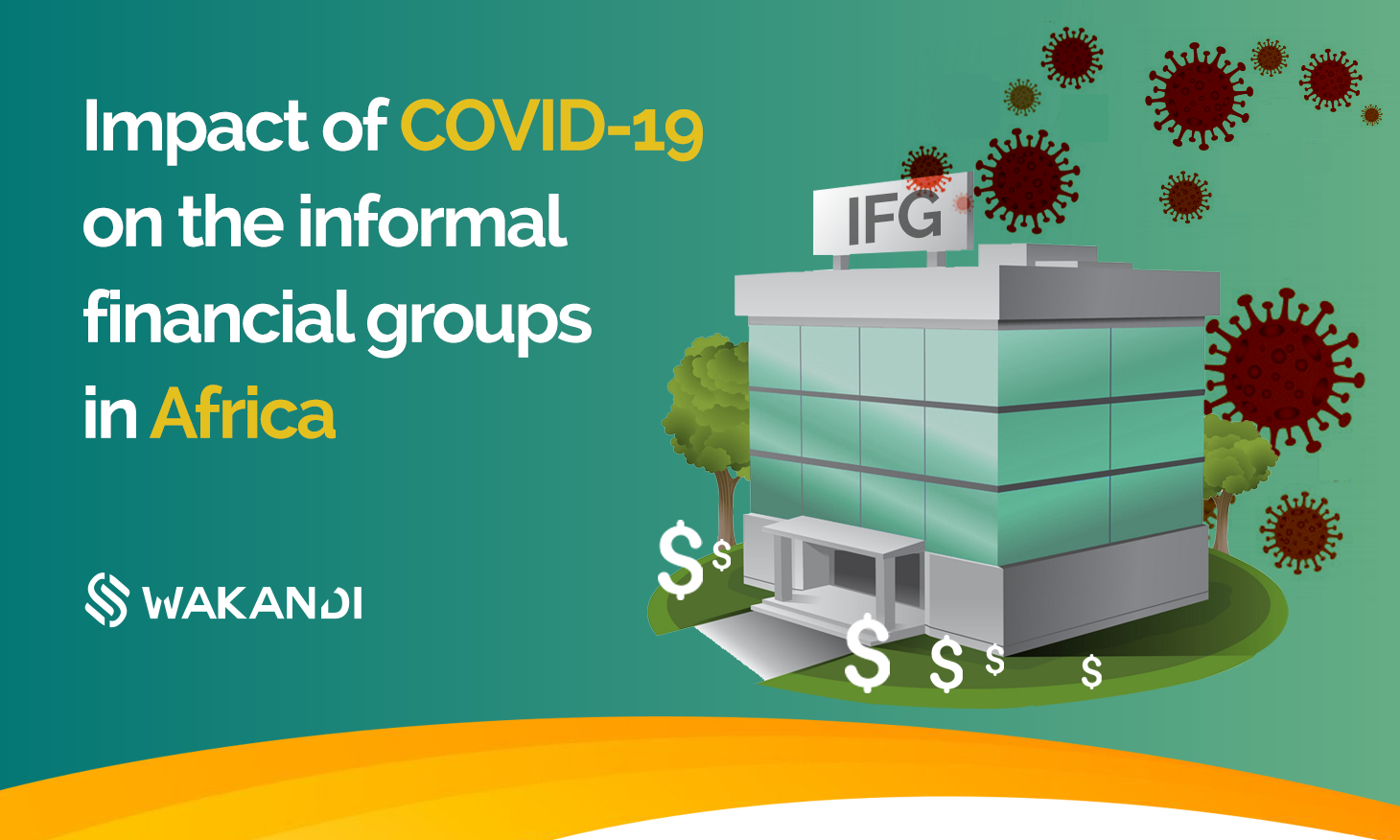Impact of COVID-19 on the informal financial groups in Africa

COVID-19 (coronavirus) has hit Africa at the time when it was experiencing adequate economic growth. Although the continent has managed to keep the pandemic under control with relatively low cases, the pandemic continues to impact African lives. The pandemic is pushing the continent into its first recession in the last 25 years.
The pandemic has dealt a massive blow to Africa’s essential services, especially to the informal financial groups (IFGs). As the economy fell, mobility was restricted, social gatherings were prohibited, IFGs remained uncertain about getting back on track. The dependence on cash as a means of payment too came up as a big challenge.
Informal financial groups (IFGs)
Informal financial groups in Africa are amongst the most popular platforms for unbanked communities to avail financial services. They are community-based groups that offer basic financial services, including savings and credit facilities to millions of members. There are more than 762000 informal savings groups in East Africa, with 18 million members availing services. More than 10.6 million people in Tanzania continue to access financial services through informal channels.
Savings groups in Africa generally include 15-30 people, mostly daily wage workers and rural women. They gather together every week or month to collect their savings. These groups are a critical engine for economic opportunities for millions of households, especially in rural areas. They have proven to be a safety net for people who do not have access to formal financial services or trust formal institutions.
The emergence of COVID-19 took the economy by storm, significantly affecting the functioning of informal groups. Lack of digital resources and proper planning led to various challenges in front of them.
Read more: How can CAMS help savings groups against COVID-19?
Nigeria has millions of daily wagers and small business owners who were hit hard by the lockdown measures. Uganda’s extended lockdown tested the resilience of a massive workforce of daily workers. Members of these groups couldn’t meet due to various restrictions. They were unable to move out of their houses and send their contributions.
How to prepare for the future?
The COVID-19 crisis has highlighted the dire need for more digital and innovative solutions. Making contributions and applying for loans through mobile can lead to quick and efficient processes. Wakandi is one of the companies who are willing to build a cashless experience in Africa. We are on our way to deliver a solution that can lead to a more effective and digital way of managing savings groups. You can read more about it here.
Banks can also play a critical role by providing financial services to every corner of African countries. Partnering with governments and groups, banks can ensure proper cash flows and secure transactions between the members. Moreover, this can be a significant step towards financial inclusion as the number of mobile users continue to rise. No more than ever, banks and mobile money can enable African communities to manage such economic emergencies in the future.
To conclude, we recognize the uncertainty and challenges that savings groups faced. It is when all the market players, including banks, Fintechs, and the government combine efforts and move towards adopting technology and building a society that is ready for the future.

Comments